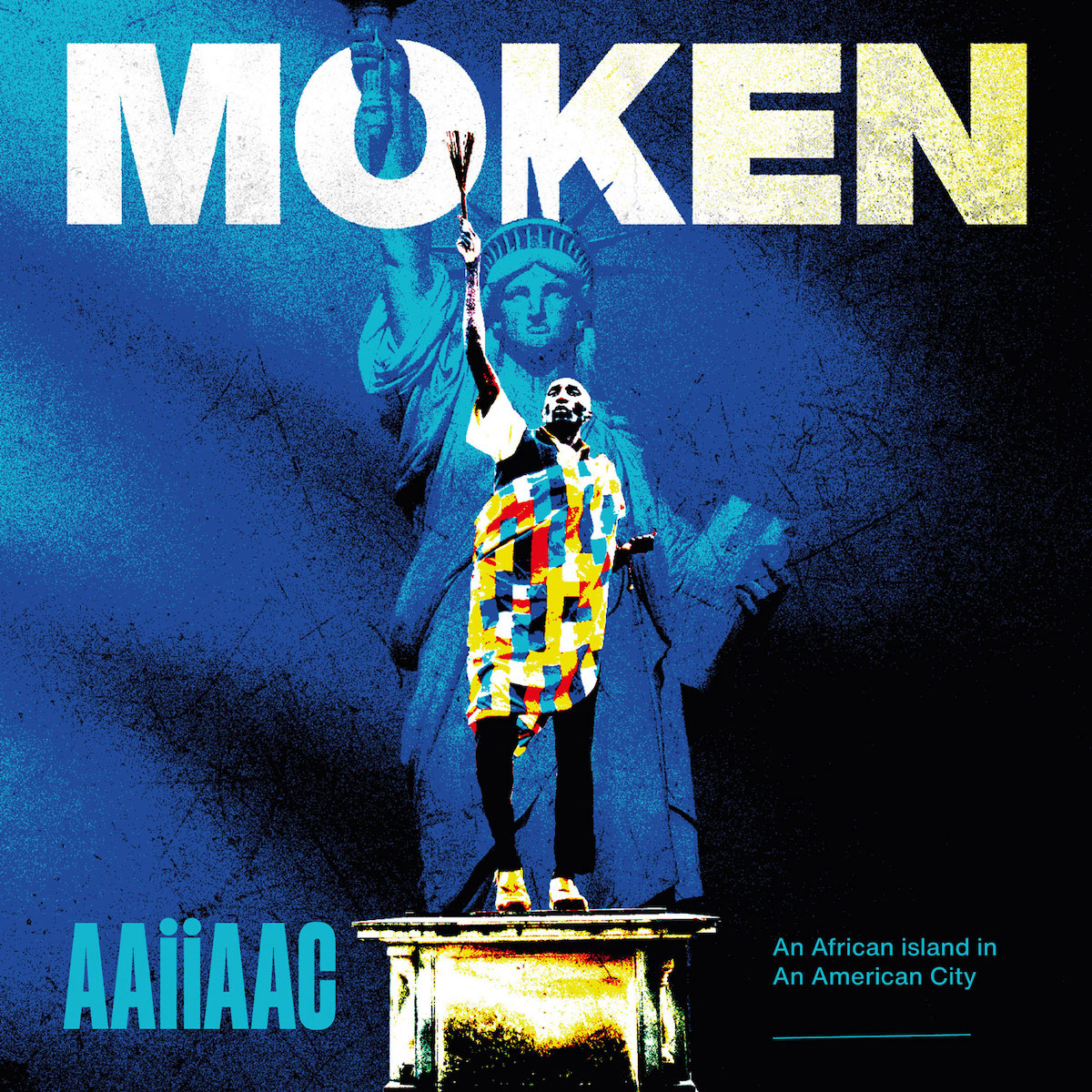THE EDITED PRESS RELEASE: “I have always lived on an island of my own dreams, even back in Africa,” shares Cameroonian, avant-garde, Afro-pop artist and balladeer Moken Nunga. “Today, I am experiencing island life in America, as I’ve been abandoned by many members of my family. If you can stay optimistic in adversity such as this, you can produce your best work. Out of isolation came the best songs of my career.”
The Atlanta-based artist is referring to his finely crafted third album, An African Island in an American City, due Oct. 13. The 15-song record is an imaginative and purposeful collection of songs with a freewheeling melting-pot aesthetic that cements Moken’s artistic identity while it also showcases his versatility.
His latest single Glory Days — showcasing today on Tinnitist — shines with a gospel sense of hope. Moken’s soulfully weary vocals sing the opening lines:
“Tell me now if glory days are gone
If we all work in vain
Or time will heal the pain.”

And the song slowly unfolds with stately piano and folksy acoustic guitar supporting his richly expressive vocals. Glory Days dynamically builds up to feature a slowly soaring slide guitar melody with Moken’s fluttery vocals underneath gorgeously quivering. Lyrically, this song is a snapshot of his days struggling in Detroit trying to make ends meet, always rushing from a 9-to-5 painting job to a classroom. It’s a nostalgic and emotional song, and in it, he wonders where the hard work will lead him. “It presents a question to mankind: do we all work in vain, or will time heal the pain? This song is a prayer.”
Moken might be one of the most singular voices in modern music. His stunning vocal lines dramatically vacillate between mournful falsetto tones and rich baritone singing all set against a musical bed of balmy acoustic-based Afro-pop, slinky grooves, and, sometimes, dissonant musical thematic overlay. His genre-defying songwriting pulls from Afrobeat, Makossa, West African palm-wine music, blues, jazz, rock n’ roll, American folk, EDM, and beyond. He’s influenced by Francis Bebey, Miriam Makeba, Nina Simone, Fela Kuti, Bob Dylan, Van Morrison, James Brown and Nat “King” Cole.
He is a polymath creative, and in addition to being a singer-songwriter, Moken is an accomplished visual artist, dancer, writer, fashion designer, and poet. As a talented teen, he had his own art studio, and he fell into playing music naturally, sitting in with nearby street musicians playing Bob Marley. “I would join them, making funny noises and mimicking Bob Marley. They encouraged me to keep going and explore music,” Moken recalls. Eventually, Moken did just that; he bought his own guitar and began figuring out how to play.

What eluded him was writing songs — he was baffled by the process — until something of magical turn events showed him the way. Every Sunday he would dress up nicely and visit the beach to feel the energy of the ocean. One time, in the sound of the waves crashing, he heard music coming back at him, and he rushed back home to see if he could capture the sounds on his guitar. Instinctually, he pulled out a poem he had written and started singing the words against the chords he heard inspired by the crashing sea. It was then that he discovered how to write a song.
Moken’s story took a life-changing turn when he won a green card lottery, and suddenly could migrate to America. He first settled in Detroit, where he worked full-time, went to school full-time, and saved money by living in his car. He wrote many of his beloved songs in that car. In time, he left school to free up his schedule to pursue his music career, and moved to Atlanta. Today, he is three albums into a successful career, and An African Island in an American City is a career high watermark.”
Watch Glory Days above, hear more from Moken below, and follow him on Instagram, Facebook and Twitter.










































